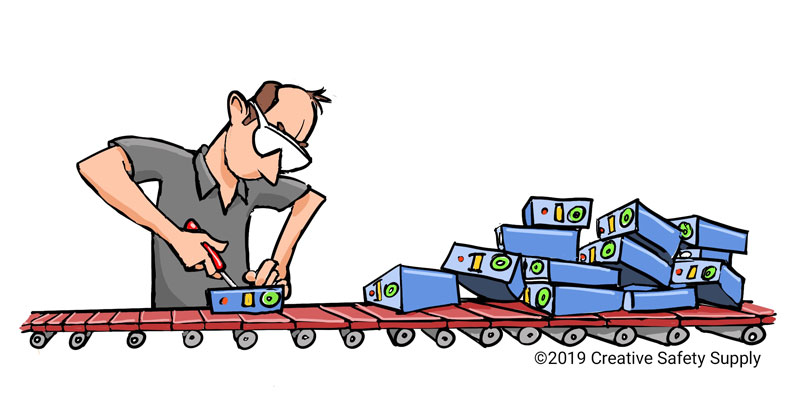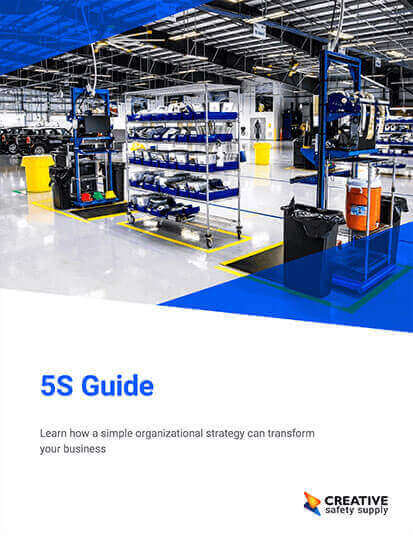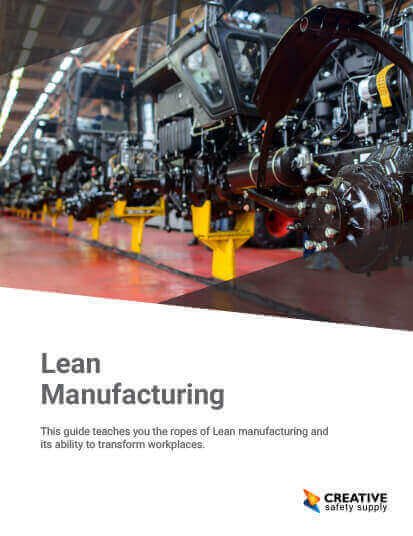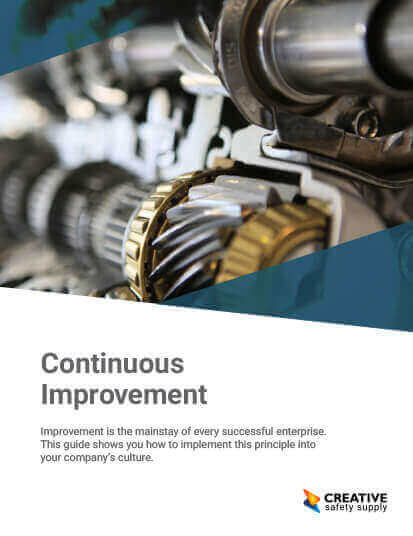
Bottlenecks are areas in the production process where for one reason or another, work gets backed up. They cause slowdowns, interruptions, and disruptions to the manufacturing process causing wastes to occur. Nearly every production system will have a bottleneck, whether it be a major slowdown or a minor one. An accumulation of interruptions and bottlenecks can result in stalls in production, supply overstock, time wasted, and machinery being damaged or worn out. Whether input is coming in at a higher rate than output, a machine isn’t working properly, or the process is already at full capacity, a bottleneck is sure to slow down production and cause wastes.
 Spotting the Bottleneck
Spotting the Bottleneck
Identifying the bottlenecks in a system is essential to improving efficiency in a facility. One way to do this is through completing a bottleneck analysis. Being aware of the bottleneck and where it is at in the production line is the first step to eliminating it. When performing a bottleneck analysis, it is important to look at the specific step the bottleneck is occurring and how that relates to the manufacturing process as a whole.
Addressing the Bottleneck
For instance, you may find another, possibly smaller, bottleneck occurring in the beginning of the process, and by eliminating that it will affect other slowdowns in the production line. Some solutions to bottlenecks include adding additional capacity, adjusting the flow, eliminating wasted steps, adding staff, or even reducing production. Once a bottleneck is identified, addressed, and resolved, the manufacturing process can be streamlined and run much more smoothly.
A preemptive strategy to address minor bottlenecks before the issue gets too serious is to train employees to watch for them. Training will usually involve department managers instructing frontline employees on the signs of a bottleneck to look out for. These typically include departments or machines having a hard time keeping up, staff being shuffled around to accommodate the processes, or identifying specific areas that are impacted by a short staff.
Similar Glossary Terms
- WIP (Work in Progress)
- Throughput
- Pull System
- One-piece Flow
- Production Efficiency
- Material Flow
- Lean Manufacturing Tools
- Waste of Overproduction
- Jidoka


